 William Shakespeare @ShakeIt O coward conscience, how dost thou afflict me!"
(King Richard III, Act V, Scene III).
William Shakespeare @ShakeIt O coward conscience, how dost thou afflict me!"
(King Richard III, Act V, Scene III).
London 1600

 Erin Templeton @eetempleton @roopikarisam I do. I've also been on panels where the organizer has openly encouraged the audience to tweet & provided hashtag
Erin Templeton @eetempleton @roopikarisam I do. I've also been on panels where the organizer has openly encouraged the audience to tweet & provided hashtag
30 Sep 2012

 Roopika Risam @roopikarisam @eetempleton Do you then tell the audience it's okay or nor okay to tweet in the panel?
Roopika Risam @roopikarisam @eetempleton Do you then tell the audience it's okay or nor okay to tweet in the panel?
30 Sep 2012

 Erin Templeton @eetempleton @roopikarisam When I have organized panels at these confs (eg MLA) I still ask speakers beforehand.
Erin Templeton @eetempleton @roopikarisam When I have organized panels at these confs (eg MLA) I still ask speakers beforehand.
30 Sep 2012

 Roopika Risam @roopikarisam @eetempleton If you're at a conf known to have a backchannel, is that implied consent?
Roopika Risam @roopikarisam @eetempleton If you're at a conf known to have a backchannel, is that implied consent?
30 Sep 2012

 Erin Templeton @eetempleton If I'm giving a paper, chances are I'm cool w/ having people tweet it, but that doesn't mean I won't be pissed if it isn't clear beforehand.
Erin Templeton @eetempleton If I'm giving a paper, chances are I'm cool w/ having people tweet it, but that doesn't mean I won't be pissed if it isn't clear beforehand.
30 Sep 2012

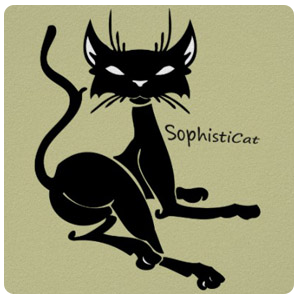 Kate E. Cloub @Sophist-e-Kate @Rhetorasaurus – seconded! Though it's tough to feel like a peer as a grad student amongst published scholars.
Kate E. Cloub @Sophist-e-Kate @Rhetorasaurus – seconded! Though it's tough to feel like a peer as a grad student amongst published scholars.
7 Jun 2013

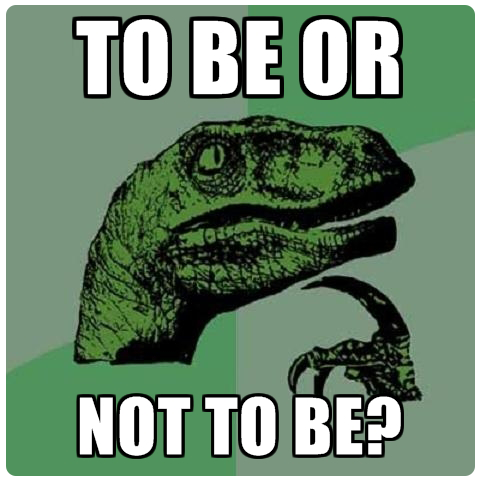 Bate U. Locke @Rhetorasaurus I come to conferences to share my ideas & get feedback, *and* listen to others & give feedback. I want to be amongst peers not "my betters."
Bate U. Locke @Rhetorasaurus I come to conferences to share my ideas & get feedback, *and* listen to others & give feedback. I want to be amongst peers not "my betters."
7 Jun 2013

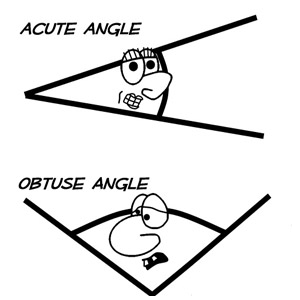 O. Balee Tuck @Rhet-angular @OppressedPed I love this idea, and that's community! MT "a new term emerges: teacher-student w/students-teachers"
O. Balee Tuck @Rhet-angular @OppressedPed I love this idea, and that's community! MT "a new term emerges: teacher-student w/students-teachers"
7 Jun 2013

 Jacques Ranciere @EmancipatedSpec 2/2-themselves belong to the structure of domination and subjection (13).
Jacques Ranciere @EmancipatedSpec 2/2-themselves belong to the structure of domination and subjection (13).
Verso 2009

 Jacques Ranciere @EmancipatedSpec 1/2-Emancipation begins… when we understand that the self-evident facts that structure the relations between saying, seeing & doing ...
Jacques Ranciere @EmancipatedSpec 1/2-Emancipation begins… when we understand that the self-evident facts that structure the relations between saying, seeing & doing ...
Verso 2009

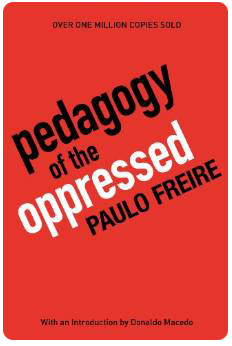 Paulo Friere @OppressedPed Through dialogue, the teacher-of-the-students & the-students-of-the-teacher cease to exist & a new term emerges: teacher-student w/students-teachers (80).
Paulo Friere @OppressedPed Through dialogue, the teacher-of-the-students & the-students-of-the-teacher cease to exist & a new term emerges: teacher-student w/students-teachers (80).
Continuum 2009

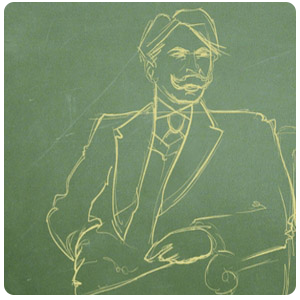 Blake T. Cue @Rhetro-Actor @Rhet-angular that's legit. I hate it when I feel like I'm being talked/read at instead of engaged.
Blake T. Cue @Rhetro-Actor @Rhet-angular that's legit. I hate it when I feel like I'm being talked/read at instead of engaged.
7 Jun 2013

 Jacques Ranciere @EmancipatedSpec 3/3-where she will exchange the privilege of rational observer for that of being in possession of all her vital energies (4).
Jacques Ranciere @EmancipatedSpec 3/3-where she will exchange the privilege of rational observer for that of being in possession of all her vital energies (4).
Verso 2009

 Jacques Ranciere @EmancipatedSpec 2/3-She must be dispossessed of this illusory mastery, drawn into the magic circle of theatrical action…
Jacques Ranciere @EmancipatedSpec 2/3-She must be dispossessed of this illusory mastery, drawn into the magic circle of theatrical action…
Verso 2009

 O. Balee Tuck @Rhet-angular Issue of joint-responsibility, then. Presenters & audience should be working/talking together, & live tweeting fosters that connection.
O. Balee Tuck @Rhet-angular Issue of joint-responsibility, then. Presenters & audience should be working/talking together, & live tweeting fosters that connection.
7 Jun 2013

 Jacques Ranciere @EmancipatedSpec 1/3-The spectator must be removed from the position of observer calmly examining the spectacle offered to her.
Jacques Ranciere @EmancipatedSpec 1/3-The spectator must be removed from the position of observer calmly examining the spectacle offered to her.
Verso 2009

 Paulo Friere @OppressedPed Instead of communicating, the teacher issues communiques & makes deposits which the students patiently receive, memorize, and repeat (72).
Paulo Friere @OppressedPed Instead of communicating, the teacher issues communiques & makes deposits which the students patiently receive, memorize, and repeat (72).
Continuum 2009

 Paulo Friere @OppressedPed Education thus becomes an act of depositing, in which the students are the depositories and the teacher is the depositor (72).
Paulo Friere @OppressedPed Education thus becomes an act of depositing, in which the students are the depositories and the teacher is the depositor (72).
Continuum 2009

 Paulo Friere @OppressedPed Implicit in the banking concept is the assumption of a dichotomy between human beings and the world: … the individual is spectator, not re-creator (75).
Paulo Friere @OppressedPed Implicit in the banking concept is the assumption of a dichotomy between human beings and the world: … the individual is spectator, not re-creator (75).
Continuum 2009

 O. Balee Tuck @Rhet-angular According to @OppressedPed in problem-posing education, teachers & students "become jointly responsible for a process in which all grow" (80).
O. Balee Tuck @Rhet-angular According to @OppressedPed in problem-posing education, teachers & students "become jointly responsible for a process in which all grow" (80).
7 Jun 2013

 Jacques Ranciere @EmancipatedSpec #2-the spectator remains immobile in her seat, passive. To be a spectator is to be separated from both the capacity to know & the power to act (2).
Jacques Ranciere @EmancipatedSpec #2-the spectator remains immobile in her seat, passive. To be a spectator is to be separated from both the capacity to know & the power to act (2).
Verso 2009

 Kate E. Cloub @Sophist-e-Kate @Rhet-angular @Rhetro-Actor I suppose. But obvious to whom? The other people on Twitter? They aren't likely to be too concerned.
Kate E. Cloub @Sophist-e-Kate @Rhet-angular @Rhetro-Actor I suppose. But obvious to whom? The other people on Twitter? They aren't likely to be too concerned.
7 Jun 2013

 Jacques Ranciere @EmancipatedSpec + about the process of production of this appearance & about the reality it conceals (2).
Jacques Ranciere @EmancipatedSpec + about the process of production of this appearance & about the reality it conceals (2).
Verso 2009

 Jacques Ranciere @EmancipatedSpec #1-viewing is the opposite of knowing: the spectator is held before an appearance in a state of ignorance… +
Jacques Ranciere @EmancipatedSpec #1-viewing is the opposite of knowing: the spectator is held before an appearance in a state of ignorance… +
Verso 2009

 Jacques Ranciere @EmancipatedSpec the paradox of the spectator - "there is no theater without a spectator, [but] … being a spectator is a bad thing for two reasons… (2).
Jacques Ranciere @EmancipatedSpec the paradox of the spectator - "there is no theater without a spectator, [but] … being a spectator is a bad thing for two reasons… (2).
Verso 2009

 O. Balee Tuck @Rhet-angular @Rhetro-Actor @Sophist-e-Kate – but doesn't it also end up being obvious that you're not paying attention when you don't tweet much?
O. Balee Tuck @Rhet-angular @Rhetro-Actor @Sophist-e-Kate – but doesn't it also end up being obvious that you're not paying attention when you don't tweet much?
7 Jun 2013

 Kate E. Cloub @Sophist-e-Kate @Rhetro-Actor But then I end up sitting through the panel b/c I feel obligated. And since I'm usually live tweeting, it's obvious if I leave
Kate E. Cloub @Sophist-e-Kate @Rhetro-Actor But then I end up sitting through the panel b/c I feel obligated. And since I'm usually live tweeting, it's obvious if I leave
7 Jun 2013

 Kate E. Cloub @Sophist-e-Kate @Rhetro-Actor my panel-picker spidey-sense is broken. Unless I know the presenters, I often end up in really dull panels & get frustrated.
Kate E. Cloub @Sophist-e-Kate @Rhetro-Actor my panel-picker spidey-sense is broken. Unless I know the presenters, I often end up in really dull panels & get frustrated.
7 Jun 2013

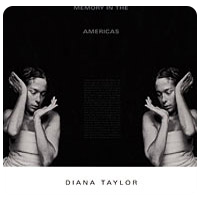 Diana Taylor @ArchiveRep Every performance enacts a theory, and every theory performs in the public sphere (27).
Diana Taylor @ArchiveRep Every performance enacts a theory, and every theory performs in the public sphere (27).
Duke UP 2003

 Blake T. Cue @Rhetro-Actor You could say it's a mutual responsibility. But just 'cause I'm looking at my screen doesn't mean I'm not paying attention.
Blake T. Cue @Rhetro-Actor You could say it's a mutual responsibility. But just 'cause I'm looking at my screen doesn't mean I'm not paying attention.
7 Jun 2013

 Diana Taylor @ArchiveRep we learn and transmit knowledge through embodied action, through cultural agency, and by making choices (xvi).
Diana Taylor @ArchiveRep we learn and transmit knowledge through embodied action, through cultural agency, and by making choices (xvi).
Duke UP 2003

 Blake T. Cue @Rhetro-Actor @Rhet-angular OK. So it's my job to pick a panel that sounds interesting, but I still think the presenter owes it to me to BE interesting.
Blake T. Cue @Rhetro-Actor @Rhet-angular OK. So it's my job to pick a panel that sounds interesting, but I still think the presenter owes it to me to BE interesting.
7 Jun 2013

 O. Balee Tuck @Rhet-angular @Rhetro-Actor - @NecTheater - see? There's at least some degree of audience responsibility here.
O. Balee Tuck @Rhet-angular @Rhetro-Actor - @NecTheater - see? There's at least some degree of audience responsibility here.
7 Jun 2013

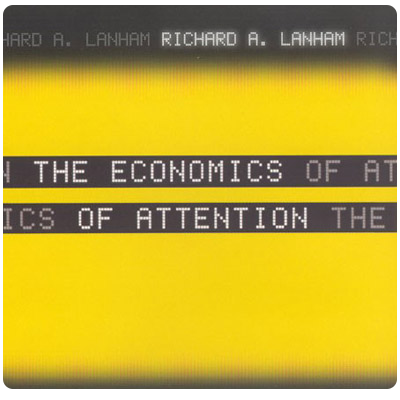 Richard A. Lanham @AttnEconomy the arts & letters, which create attn structures 2 teach us how 2 attend 2 the world, must be central 2 acting in the world as well as contemplating it (14).
Richard A. Lanham @AttnEconomy the arts & letters, which create attn structures 2 teach us how 2 attend 2 the world, must be central 2 acting in the world as well as contemplating it (14).
U Chicago Press 2006

 Richard A. Lanham @AttnEconomy you take your grand idea and you persuade people to share its grandeur… You create, as persuasion must, a participative drama (59).
Richard A. Lanham @AttnEconomy you take your grand idea and you persuade people to share its grandeur… You create, as persuasion must, a participative drama (59).
U Chicago Press 2006

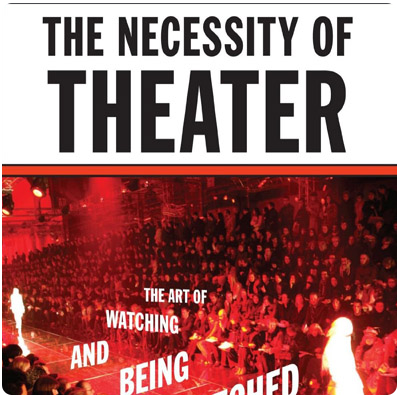 Paul Woodruff @NecTheater 2/2-Part of my job in the audience is to be the kind of person who can be rewarded by watching such a performance (68).
Paul Woodruff @NecTheater 2/2-Part of my job in the audience is to be the kind of person who can be rewarded by watching such a performance (68).
Oxford UP 2008

 Paul Woodruff @NecTheater 1/2-The art of theater is not entirely up to the performers…
Paul Woodruff @NecTheater 1/2-The art of theater is not entirely up to the performers…
Oxford UP 2008

 William Shakespeare @ShakeIt An honest tale speeds best, being plainly told (King Richard III, Act IV, Scene IV).
William Shakespeare @ShakeIt An honest tale speeds best, being plainly told (King Richard III, Act IV, Scene IV).
London 1600

 Allison Hitt @ahhitt @CateBlouke asks, what is the purpose of academic conferences? If workshopping, we can do that from afar. We present & perform. #b5 #cwcon
Allison Hitt @ahhitt @CateBlouke asks, what is the purpose of academic conferences? If workshopping, we can do that from afar. We present & perform. #b5 #cwcon
7 Jun 2013

 Roopika Risam @roopikarisam @scATX Absolutely. Got to hear about 4 conf last week. How about that for production, distribution, and consumption of knowledge.
Roopika Risam @roopikarisam @scATX Absolutely. Got to hear about 4 conf last week. How about that for production, distribution, and consumption of knowledge.
30 Sep 2012

 Jessica W. Luther @scATX @roopikarisam @adelinekoh @tressiemcphd @graceishuman I appreciate tweeting of panels or papers I'd like to see but can't afford to
Jessica W. Luther @scATX @roopikarisam @adelinekoh @tressiemcphd @graceishuman I appreciate tweeting of panels or papers I'd like to see but can't afford to
30 Sep 2012

 Jessica W. Luther @scATX @roopikarisam @adelinekoh @tressiemcphd @graceishuman for me it's also about access - we can't all afford to get conferences...
Jessica W. Luther @scATX @roopikarisam @adelinekoh @tressiemcphd @graceishuman for me it's also about access - we can't all afford to get conferences...
30 Sep 2012

 Adeline Koh @adelinekoh @qui_oui @tressiemcphd i agree w u. in fact, the more of a record u hv of the idea u hv being associated w u, the less pop to 'steal'
Adeline Koh @adelinekoh @qui_oui @tressiemcphd i agree w u. in fact, the more of a record u hv of the idea u hv being associated w u, the less pop to 'steal'
30 Sep 2012

 Melonie Fullick @qui_oui @adelinekoh @tressiemcphd So what could I say, in public, that could be "stolen" without people having already seen it was "mine"?
Melonie Fullick @qui_oui @adelinekoh @tressiemcphd So what could I say, in public, that could be "stolen" without people having already seen it was "mine"?
30 Sep 2012

 William Shakespeare @ShakeIt The better part of valour is discretion (King Henry IV, Part I, Act V, Scene IV).
William Shakespeare @ShakeIt The better part of valour is discretion (King Henry IV, Part I, Act V, Scene IV).
London 1600

 Melonie Fullick @qui_oui @adelinekoh @tressiemcphd I mean, if I'm saying it at a conference...there's a record. If I blog it, there's a record. If I tweet it...etc.
Melonie Fullick @qui_oui @adelinekoh @tressiemcphd I mean, if I'm saying it at a conference...there's a record. If I blog it, there's a record. If I tweet it...etc.
30 Sep 2012

 William Shakespeare @ShakeIt O, that way madness lies; let me shun that; / No more of that" (King Lear Act 3, scene 4).
William Shakespeare @ShakeIt O, that way madness lies; let me shun that; / No more of that" (King Lear Act 3, scene 4).
London 1600

 Melonie Fullick @qui_oui @adelinekoh @tressiemcphd I don't understand how someone could "take my idea", though. What idea? How?
Melonie Fullick @qui_oui @adelinekoh @tressiemcphd I don't understand how someone could "take my idea", though. What idea? How?
30 Sep 2012

 Bonnie Stewart @bonstewart @tressiemcphd @nathanjurgenson yep. the idea of control over one's conf presentation is odd...if you publish, can ppl tweet summaries? #same
Bonnie Stewart @bonstewart @tressiemcphd @nathanjurgenson yep. the idea of control over one's conf presentation is odd...if you publish, can ppl tweet summaries? #same
30 Sep 2012

 O. Balee Tuck @Rhet-angular Onomasticon: a list or collection of specialized terms, as those used in a particular field or subject area.
O. Balee Tuck @Rhet-angular Onomasticon: a list or collection of specialized terms, as those used in a particular field or subject area.
7 Jun 2013

 O. Balee Tuck @Rhet-angular RT @CateBlouke "I'm adding 'onomasticon' (today's dictionary.com word of the day) to my list of favorite words. Now to figure out how to use it…"
O. Balee Tuck @Rhet-angular RT @CateBlouke "I'm adding 'onomasticon' (today's dictionary.com word of the day) to my list of favorite words. Now to figure out how to use it…"
5 Jun 2014

 Kate E. Cloub @Sophist-e-Kate @roopikarisam Ha! Totally agree there. You're saying this stuff in public, and it's out there! Twitter just lets more people know.
Kate E. Cloub @Sophist-e-Kate @roopikarisam Ha! Totally agree there. You're saying this stuff in public, and it's out there! Twitter just lets more people know.
7 Jun 2013

 Roopika Risam @roopikarisam @literarychica @tressiemcphd So we're discussing the expectation of privacy for... a public talk. There's a Roe v Wade joke to be made..
Roopika Risam @roopikarisam @literarychica @tressiemcphd So we're discussing the expectation of privacy for... a public talk. There's a Roe v Wade joke to be made..
30 Sep 2012

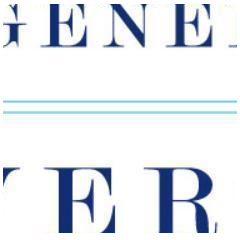 First Generation U @FirstGenU @tnopper @tressiemcphd Interesting discussion, but once you put ideas out there they are no longer yours to control.
First Generation U @FirstGenU @tnopper @tressiemcphd Interesting discussion, but once you put ideas out there they are no longer yours to control.
29 Sep 2012

 William Shakespeare @ShakeIt A thought which, quarter'd, hath but one part wisdom / And ever three parts coward (Hamlet Act 4, scene 4).
William Shakespeare @ShakeIt A thought which, quarter'd, hath but one part wisdom / And ever three parts coward (Hamlet Act 4, scene 4).
London 1600

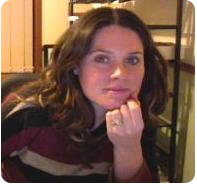 Kelli McGraw @kmcg2375 @tnopper But, why are you presenting sensitive information at a conference? You should never present ideas if concerned about IP /copyright!
Kelli McGraw @kmcg2375 @tnopper But, why are you presenting sensitive information at a conference? You should never present ideas if concerned about IP /copyright!
29 Sep 2012

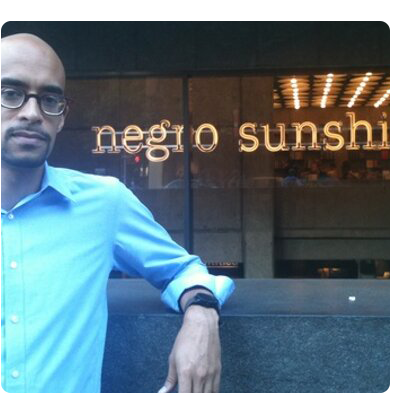 josh guild @wardellfranklin @jmjohnsophd @ColeJocelyn @divafeminist public spaces, yes. but also (often) sites for sharing ideas in formation & work in progress.
josh guild @wardellfranklin @jmjohnsophd @ColeJocelyn @divafeminist public spaces, yes. but also (often) sites for sharing ideas in formation & work in progress.
29 Sep 2012

 Jessica M. Johnson @jmjafrx @wardellfranklin Tend to view panels as part of the public domain. As in, anyone can walk into a panel and receive the information exchanged
Jessica M. Johnson @jmjafrx @wardellfranklin Tend to view panels as part of the public domain. As in, anyone can walk into a panel and receive the information exchanged
29 Sep 2012

 Bate U. Locke @Rhetorasaurus Just playing devil's advocate here, but seems like if I wanted my ideas on the Internet, I'd post them. Conferences are different.
Bate U. Locke @Rhetorasaurus Just playing devil's advocate here, but seems like if I wanted my ideas on the Internet, I'd post them. Conferences are different.
7 Jun 2013

 Bate U. Locke @Rhetorasaurus @Sophist-e-Kate – Ok, but should the audience really be tweeting my ideas? I can tweet them if I want them out there.
Bate U. Locke @Rhetorasaurus @Sophist-e-Kate – Ok, but should the audience really be tweeting my ideas? I can tweet them if I want them out there.
7 Jun 2013

 Kate E. Cloub @Sophist-e-Kate So I think it's really about re-evaluating our expectations as presenters – not taking it personally when the audience isn't looking up.
Kate E. Cloub @Sophist-e-Kate So I think it's really about re-evaluating our expectations as presenters – not taking it personally when the audience isn't looking up.
7 Jun 2013

 Kate E. Cloub @Sophist-e-Kate I find that live tweeting forces me to really listen. If I'm not super-focused, I can't effectively tweet their ideas.
Kate E. Cloub @Sophist-e-Kate I find that live tweeting forces me to really listen. If I'm not super-focused, I can't effectively tweet their ideas.
7 Jun 2013

 tressie mc @tressiemcphd hmm... would note taking be considered rude? Tweeting (respectfully) is a form of public note taking. Expands the audience.
tressie mc @tressiemcphd hmm... would note taking be considered rude? Tweeting (respectfully) is a form of public note taking. Expands the audience.
30 Sep 2012

 Paul Woodruff @NecTheater Those who wish 2 be watched must adapt 2 the present audience; no 2 audiences are the same, so no 2 performances can be precisely the same (43).
Paul Woodruff @NecTheater Those who wish 2 be watched must adapt 2 the present audience; no 2 audiences are the same, so no 2 performances can be precisely the same (43).
Oxford UP 2008

 William Shakespeare @ShakeIt This above all: to thine own self be true" (Hamlet Act I, Scene III).
William Shakespeare @ShakeIt This above all: to thine own self be true" (Hamlet Act I, Scene III).
London 1600

 William Shakespeare @ShakeIt screw your courage to the sticking place, and we'll not fail (Macbeth, Act I, scene VII).
William Shakespeare @ShakeIt screw your courage to the sticking place, and we'll not fail (Macbeth, Act I, scene VII).
London 1600
